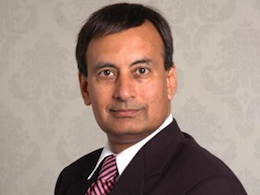A Timeline to the Memogate Scandal
 It’s a bizarre and incredible scandal that is unlikely to fizzle anytime soon. In true Pakistani fashion, Memogate pits the ‘un-reinable’ Pakistani military machine against the nation’s civilian government, brings in the element of US meddling, re-ignites discussion about ISI-Taliban links, unleashes allegations of sedition by a diplomat and suggests that a weak civilian leadership, including the president, would do anything to save its hide.
It’s a bizarre and incredible scandal that is unlikely to fizzle anytime soon. In true Pakistani fashion, Memogate pits the ‘un-reinable’ Pakistani military machine against the nation’s civilian government, brings in the element of US meddling, re-ignites discussion about ISI-Taliban links, unleashes allegations of sedition by a diplomat and suggests that a weak civilian leadership, including the president, would do anything to save its hide.
So far, the PPP government has promised an inquiry, and today the Supreme Court has promised to consider a petition submitted by the PML-N seeking a judicial probe into the matter.
Below is a timeline of events for the scandal that has forced former Pakistan Ambassador to the US Husain Haqqani to resign over charges that he dictated a secret memo to businessman Mansoor Ijaz that was to be delivered through private channels to US officials, seeking foreign intervention in Pakistani domestic affairs.
Memogate Timeline
May 2: Under the cover of darkness, US Navy Seals invade Pakistani territory, raid a private home in Abbottabad and kill Osama bin Laden without any response from the Pakistani military.
May 10: A secret memo is allegedly delivered to US Admiral Mike Mullen through unofficial channels requesting US intervention in Pakistan in case of a military coup in exchange for a revamp of the civilian government that would replace national security officials and would eliminate Section S of the ISI, a special intelligence unit with ties to the Taliban.
October 10: The Financial Times publishes an Op-Ed by US businessman Mansoor Ijaz in which he explains the motive of the memo in which he was allegedly asked to deliver: “The embarrassment of bin Laden being found on Pakistani soil had humiliated Mr Zardari’s weak civilian government to such an extent that the president feared a military takeover was imminent.”
October 22: Lt General Shuja Pasha, director general of the ISI, flies to London to meet Mr Ijaz.
November 9: Farahnaz Ispahani, media spokesperson for President Asif Zardari and wife of then Ambassador Husain Haqqani tweets, “The end result: a population raised on a diet of conspiracy. The wild claims of Mansoor Ijaz.”
November 16: Prime Minister Yousuf Raza Gilani, General Kayani and President Zardari meet at the Presidency in Islamabad to discuss the secret memo controversy.
November 17: Mansoor Ijaz confirms to Dawn that Ambassador Haqqani “was indeed the senior Pakistani diplomat who asked me to assist him in privately delivering his message to Admiral Mullen.”
November 19: Haqqani is asked to return to Islamabad
November 19: A statement by Prime Minister Gilani’s office states that Haqqani has been asked to resign.
November 21: The Pentagon confirms that former US National Secretary Adviser James Jones passed the memo to Adm. Mullen but the admiral “did not find the contents credible at all.”
November 21: Farahnaz Ispahani speaks to the media outside the Supreme Court in Islamabad, saying Mansoor Ijaz “is a foreign national who is blaming us and attacking Pakistan’s democracy.” She also states, “When the president and prime minister guide us to take a legal option, we will do so.”
November 22: Haqqani resigns.
November 23: Sherry Rehman is appointed as Pakistan’s new ambassador to the US.
November 25: In a response to a tweet about a face-to-face meeting with Mansoor Ijaz in London, Husain Haqqani tweets, “Untrue, as there never was a meeting. Even he has never claimed it.”
November 25: Husain Haqqani responds to criticism on Twitter by tweeting, “Shouldn’t it first be proved that I had anything to do with it, beyond 1 man’s statements & media hype?”
November 25: Foreign Minister Hina Rabbani Khar tells the BBC that suggestions that President Zardari is linked to the memo are “ridiculous” and an inquiry at “the highest level” will satisfy all parties and critics.
November 28: The Supreme Court admits a petition authored by the PML-N that seeks a probe into the secret memo scandal.



